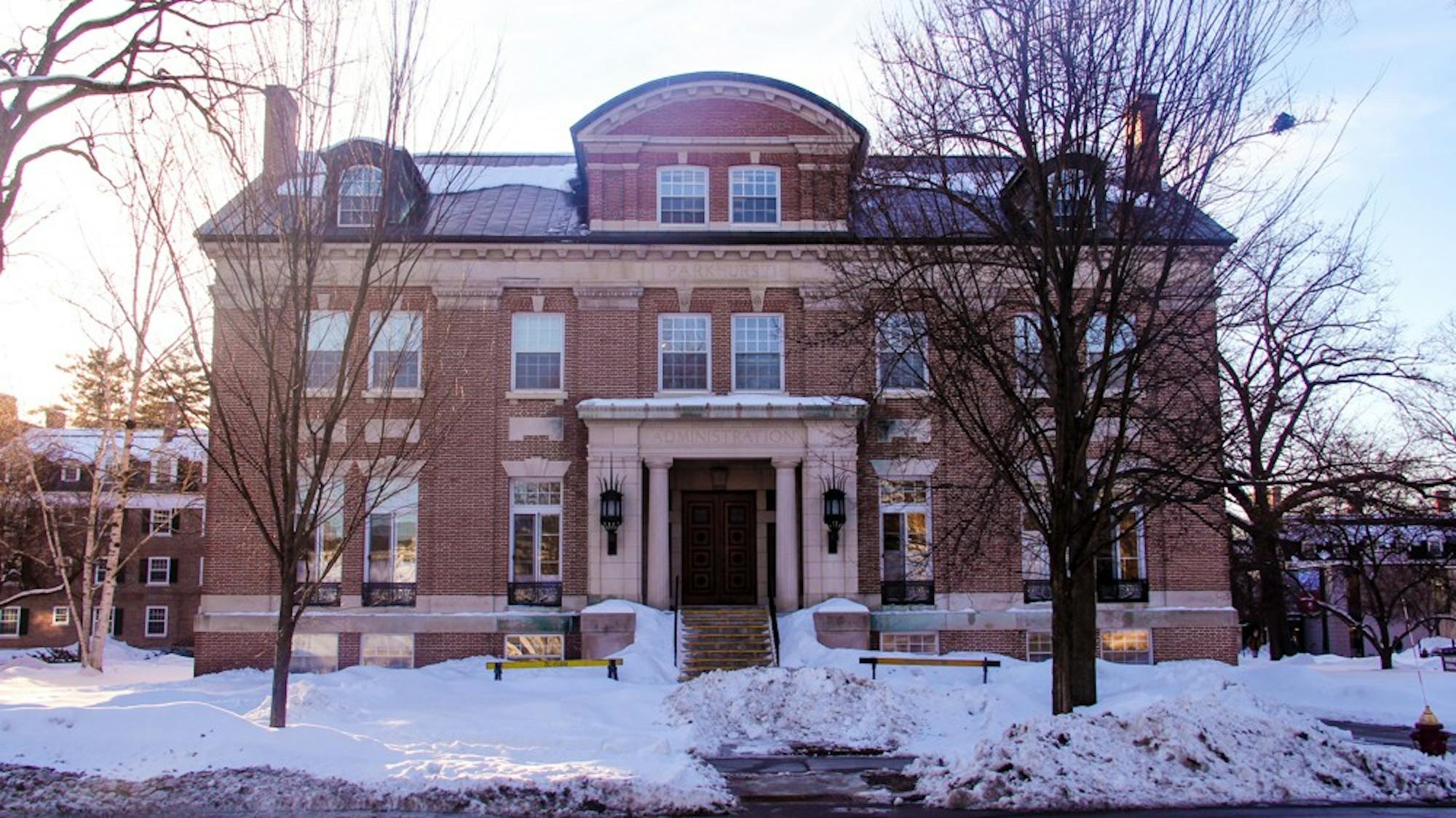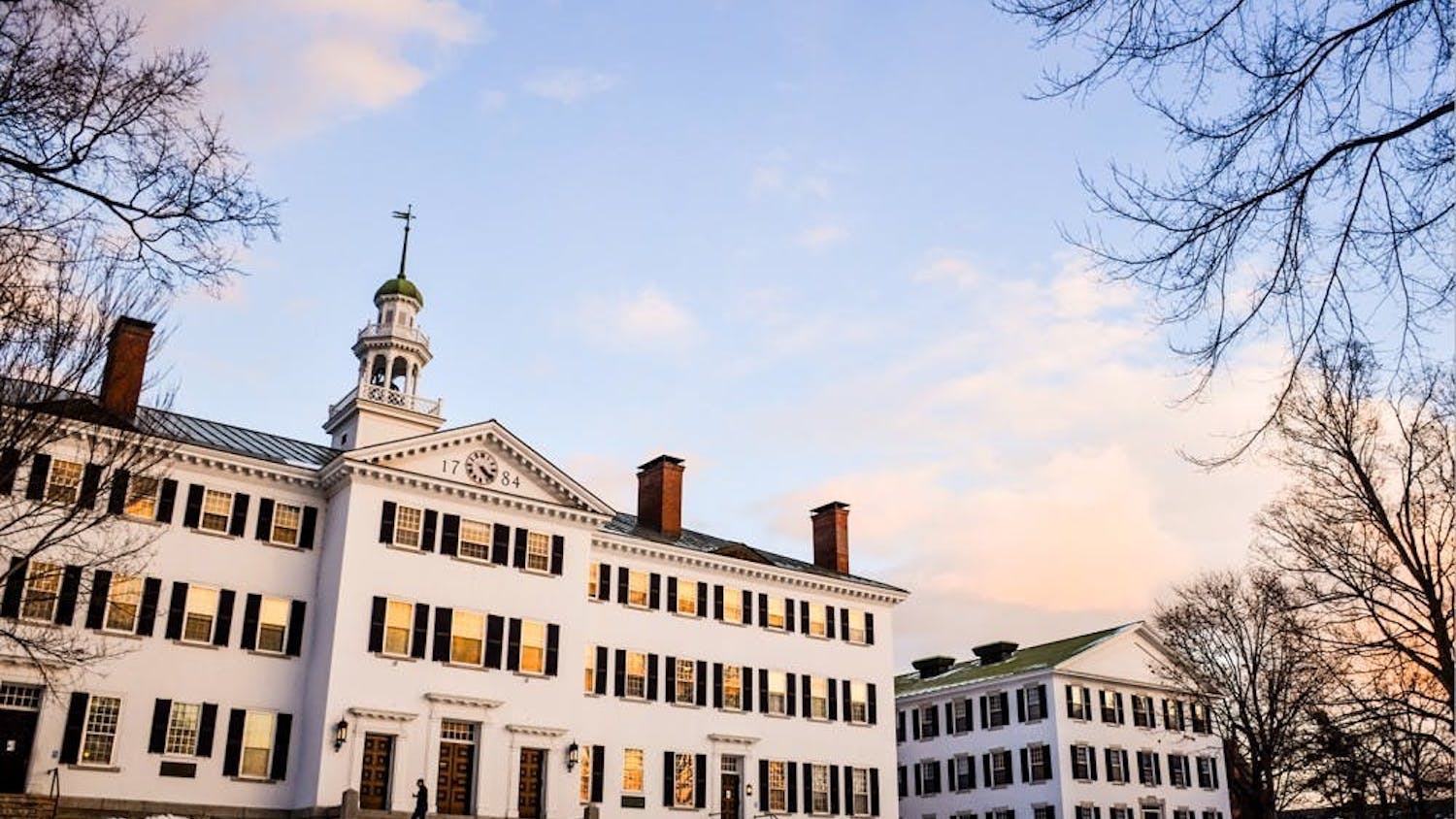In response to the recent decision by the College to significantly reduce study abroad offerings for next year, professors sent an open letter to the College on Thursday opposing the cuts and raising concern about Dartmouth’s future as envisioned by the administration.
“We fear that news of cuts to [off-campus programs] will sully Dartmouth’s reputation, draw negative national and international press, weaken faculty retention and recruitment efforts and dampen the enthusiasm and trust of our students, their parents and our alums,” the letter states.
The letter, originally drafted by French and Italian department chair David LaGuardia and finalized with input from numerous other professors, has been signed by 118 professors and community members as of Monday night. It calls for a “thoughtful exchange with the administration to clarify our short-term and long-term goals for the College” and comes following a recent push by individual language departments for continued support of impacted programs.
While acknowledging the extent of Dartmouth’s financial woes during the pandemic, the professors argued in their letter that the College has fallen short of its commitment to the liberal arts.
The recent cuts to study abroads, according to the professors, are indicative of “yet one more way in which the administration is deemphasizing and devaluing [their] work.”
LaGuardia said that in addition to signaling opposition to the cuts, the letter aims to highlight the importance of off-campus programs if the College wishes to sell itself as a “base camp to the world.”
“To us, it doesn't make any sense to cut off-campus programs at a time when the College is trying to promote diversity and inclusiveness,” LaGuardia said. “They seem to be contradictory ideas — the idea that a liberal arts education is supposed to include everyone, but we want to limit what we’re doing in terms of learning other languages in their native contexts and taking students abroad to help broaden their horizons and make them more global, worldly citizens.”
LaGuardia added that in his view, Dartmouth’s approach to studying the humanities, including the College’s emphasis on study abroad programs, distinguishes the College from peer institutions, and should be preserved.
German department chair Klaus Mladek said that he sees the study abroad cuts as “threaten[ing] the liberal arts education at Dartmouth.” According to him, the cuts are part of a larger trend both on campus and in higher education more generally.
“College administrations use the COVID crisis as a way to make those drastic cuts, for example to foreign language programs and to off-campus or abroad programs,” he said.
Mladek acknowledged the College’s current budget crisis and declining study abroad enrollment numbers but attributed lower engagement in programs to a lack of advertising and other “infrastructure to make [off-campus programs] appeal to students.”
“[The College] had almost a decade of continuous growth, great revenues and still the Guarini Institute [for International Education] was languishing,” Mladek said. “And there wasn’t a real commitment by the administration, by the president, by the Trustees, by the donors to bolster off campus programs.”
Like Mladek, Jewish studies chair Susannah Heschel, who also signed the letter, said the College’s decision was “demoralizing for students and faculty.”
Instead of canceling some programs entirely, Mladek and Heschel said Dartmouth could have worked with faculty and adjusted programs to make them more affordable to the College.
“The biggest objection to their attitude is that they have the budget crisis drive their decisions on the curriculum and the vision of Dartmouth rather than the other way round,” Mladek said. “A sound mission statement and curriculum should drive their budget decisions.”
Heschel, who said a joint German and Jewish studies study abroad program she developed was indefinitely postponed due to the cuts, said her department would have been open to addressing the budget problem by shifting particularly expensive programs — like the religion department’s program in Edinburgh, which Heschel has twice led — to a more affordable location.
“Instead of canceling, they could have given us a year or two,” Heschel said. “We could have been told, ‘There’s a structural deficit brewing — we need you to find a less expensive place,’ and we would have.”
Heschel also noted her concern that study abroad program cuts could create a domino effect by potentially contributing to the College’s housing crunch.
“You address one issue, and another problem pops up,” she said. “That's why it’s important for us to all sit down together and figure out how to handle these problems as a team, rather than having a decision come down in a hierarchical fashion that just ends up frustrating people.”
Adriana Ochoa ’24 said she signed the letter because she feels studying abroad is an “important experience during college,” and off-campus programs were a primary factor in her decision to attend Dartmouth. She said she was especially intrigued by programs like the government foreign study program in London and the language study abroad in Berlin.
Gyan Moorthy ’20 said he decided to sign his name in part due to “transformative” experiences he had studying abroad in Germany during his freshman summer and junior fall. He added that the latter experience set him up for an internship in German Parliament for his junior winter.
Moorthy also noted that as a new alumni interviewer, he was partially motivated to sign onto the letter because he felt the cuts would make it harder for him to sell Dartmouth to prospective students.
“I don't want to tell them something that may no longer be true about the institution if the institutional philosophy is no longer what it was,” Moorthy said.
College spokesperson Diana Lawrence did not respond to requests for comment by press time.
Correction appended (March 2, 2021): A previous version of this incorrectly stated that Moorthy had studied abroad during his freshman spring. The article has been updated to reflect that he studied abroad for the first time during his freshman summer.





